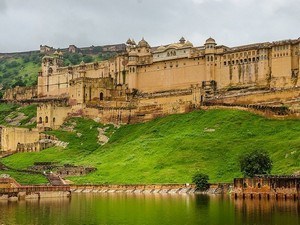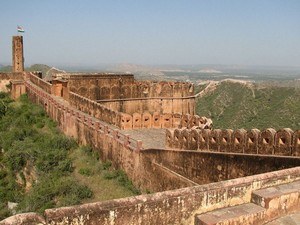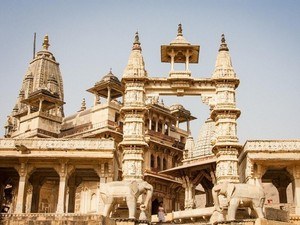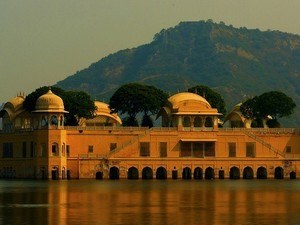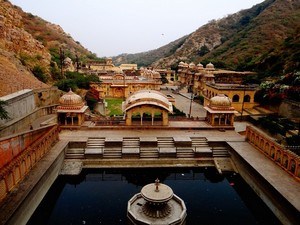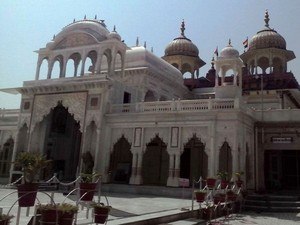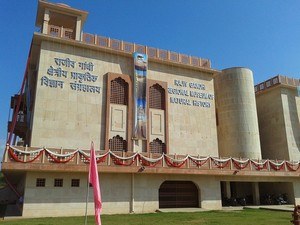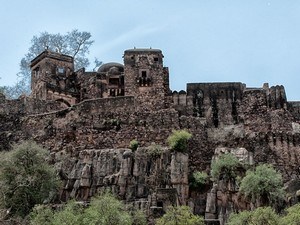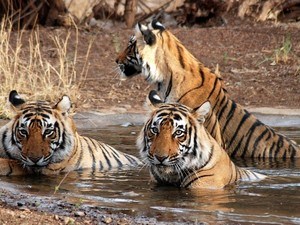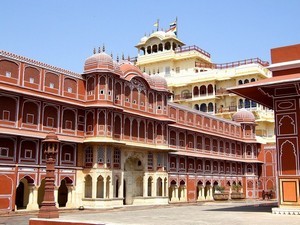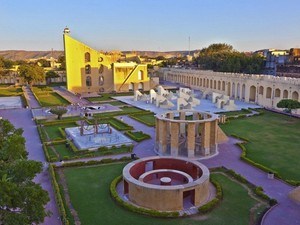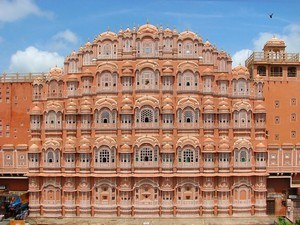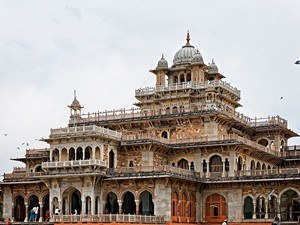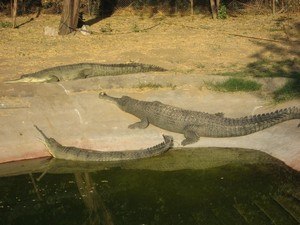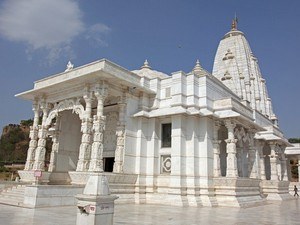DAY 1 : TRAVEL TO JAIPUR & JAIPUR SIGHTSEEING
DAY 2 : TRAVEL TO RANTHAMBHORE & RANTHAMBHORE SIGHTSEEING
 Wildlife
Wildlife
 Duration of visit: Full Day
Duration of visit: Full Day
 Timings: Safari Timings: 6.30 - 9.30AM &3.30 PM - 6.30 PM in summer, 7 AM - 10.30 PM & 2.30 PM - 6 PM in wint
Timings: Safari Timings: 6.30 - 9.30AM &3.30 PM - 6.30 PM in summer, 7 AM - 10.30 PM & 2.30 PM - 6 PM in wint
 Entry Fee: Bus Safari - Rs. 900 for Indians & Rs. 1900 for Foreigners, Jeep Safari- Rs. 1500 for Indians & Rs.
Entry Fee: Bus Safari - Rs. 900 for Indians & Rs. 1900 for Foreigners, Jeep Safari- Rs. 1500 for Indians & Rs.
At a distance of 8 km from Sawai Madhopur, 140 km from Kota, 162 km from Jaipur, 268 km from Agra, 271 km from Ajmer, 368 km from Delhi, 413 km from Udaipur, and 448 km from Jodhpur, Ranthambore National Park or Ranthambore is a wildlife sanctuary situated in the Sawai Madhopur district of Rajasthan. It is one of the largest and most renowned national parks in Northern India.
Ranthambhore was established as the Sawai Madhopur Game Sanctuary in 1955 by the Government of India and was declared one of the Project Tiger reserves in 1974. Ranthambore became a national park in 1981. In 1984, the adjacent forests were declared the Sawai Man Singh Sanctuary and Keladevi Sanctuary, and in 1991 the tiger reserve was enlarged to include the Sawai Man Singh and Keladevi sanctuaries.
The Ranthambore National Park was once the hunting ground of the Maharajas of Jaipur. The rivers Chambal in the South and Banas in the North bound the Ranthambore National Park. The landscape of the park is .....
DAY 3 : JAIPUR SIGHTSEEING & TRAVEL TO DELHI
 Wildlife
Wildlife
 Duration of visit: 1-2 Hours
Duration of visit: 1-2 Hours
 Timings: 9 AM to 5 PM. Closed on Tuesdays
Timings: 9 AM to 5 PM. Closed on Tuesdays
 Entry Fee: Rs. 15 for Indians and Rs.150 for Foreigners
Entry Fee: Rs. 15 for Indians and Rs.150 for Foreigners
At a distance of 6 km from Jaipur Junction Railway Station, Jaipur Zoo is one of the most popular zoological parks in India, situated in Ram Niwas Gardens of Jaipur. The zoo is part of conservation breeding programs of the Central Zoo Authority and Government of Rajasthan for the ghariyal, cheetal and crocodile. A trip to the Zoo is one of the popular things to do in Jaipur city.
The zoo was opened in 1877 and is located near to the Albert Hall Museum. The Zoo is divided into two parts, the Animal Section and the Bird Section along with reptiles. One can spot more than 70 species of animals, birds and reptiles. The animal section accommodates a number of animal species like Lions, leopards, tigers, white tigers and panthers. One can also spot hyenas, alligators, tortoises, jackals, foxes, bears, and a diversity of deer. The zoo is also the residence of some multicolored species of birds that comprise geese, ducks, babbling lorry, white peacock, pheasant, swans, storks, parrots, love .....
No itineraries found for the selected filters
Please wait... the places of interest are being loaded


